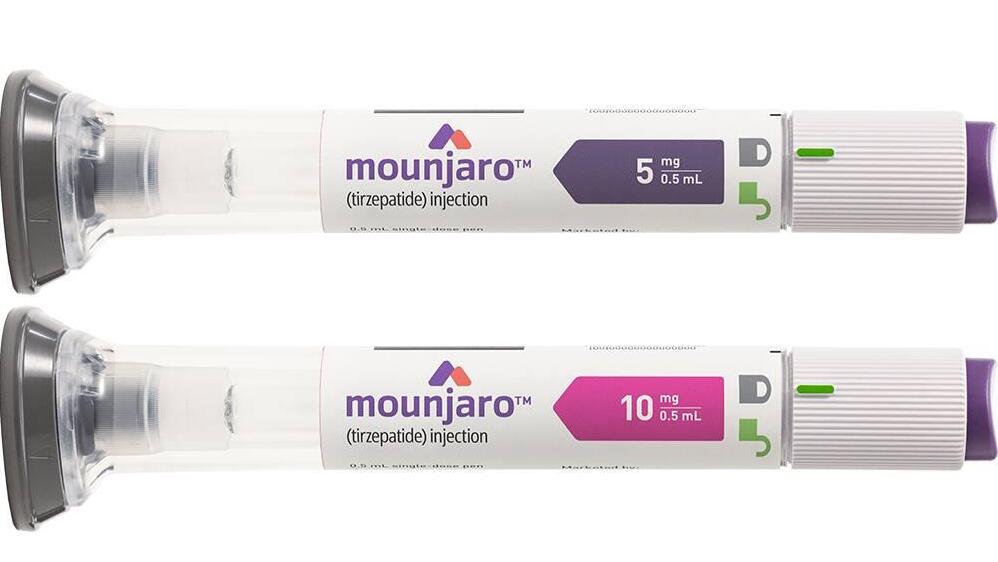Getting your Trinity Audio player ready...
U.S. pharma company Eli Lilly announced it will begin marketing the Mounjaro (Tirzepatide) injection in Israel to treat obesity and type 2 diabetes starting September 15. The drug has been submitted for both indications to the upcoming health basket (2025), but can already be purchased privately or via private insurance. The price for 2.5 mg and 5 mg doses will be 1,774 shekels ($472) per month.
The drug has shown unprecedented effectiveness in balancing blood sugar and weight loss. One of the most significant findings from Mounjaro's diabetes studies is that around 50% of patients achieved normal blood sugar levels after receiving the injection, compared to only 20% of those treated with Ozempic.
Additionally, a study published last month by Eli Lilly showed an average weight loss of 22.9% over 176 weeks. According to the company, Mounjaro’s clinical trials for obesity treatment showed unprecedented efficacy, with about 26% weight loss in patients who received 10-15 mg doses.
Furthermore, around 40% of patients lost at least 25% of their body weight. Another significant finding was a remarkable 94% reduction in the risk of progressing from prediabetes to type 2 diabetes in adults.
"Tirzepatide has shown very impressive results in diabetes treatment – some never seen before with any other drug. Equally impressive reductions in weight have been observed in obesity treatment," said Dr. Roy Eldor, head of the Tel Aviv Sourasky Medical Center’s Diabetes Unit.
 Dr. Roy EldorPhoto: Courtesy
Dr. Roy EldorPhoto: Courtesy"The study results also showed that weight loss was maintained at over 22% with high doses even after over three years have passed. Moreover, the study demonstrated a 94% prevention rate of diabetes onset. Diabetes is often a complication among people with obesity. Now, we see that we can prevent medical complications of obesity if we treat it. The more effective drugs we have for treating obesity, the more we can prevent the numerous complications it brings."
Mounjaro is part of a new drug family, acting on two mechanisms and increasing the activity of two hormones: GLP-1 and GIP. The combined action of these hormones boosts insulin secretion, reduces blood sugar levels, decreases hunger and suppresses the desire to eat.
GIP is also associated with positive effects on subcutaneous fat tissue. The combination of these two hormones leads to greater effectiveness in weight loss and blood sugar regulation, with a safety profile like those of existing medications.
In a study comparing Mounjaro to Ozempic, which contains semaglutide, Mounjaro was found to be more effective in managing type 2 diabetes. The study showed that even Mounjaro’s lower doses had greater efficacy in reducing blood sugar levels compared to Ozempic's highest doses.
Mounjaro demonstrated a 2.09% reduction in HbA1c, compared to 1.86% with Ozempic, and higher doses of Mounjaro showed even more substantial reductions, up to 2.46%.
 Dr. Lior NeumanPhoto: Hila Shachar
Dr. Lior NeumanPhoto: Hila ShacharDr. Lior Neuman, a family medicine specialist and diabetes and obesity doctor, explained the differences between tirzepatide, the active ingredient in Mounjaro, and semaglutide, the active ingredient in Wegovy and Ozempic.
He noted that both drugs are administered as a once-weekly subcutaneous injection. While both drugs influence the brain to reduce appetite, leading to lower calorie intake and weight loss, tirzepatide binds not only to the GLP-1 receptor but also to the GIP receptor.
This dual action likely accounts for its slightly higher efficacy compared to Wegovy, which leads to an average 15% weight loss after two years, according to the STEP5 study.




